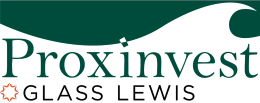Proxinvest just released its new survey “The audit of French listed companies: a shareholder’s point of view”
The research confirms that the insufficient rotation of audit mandates is a lasting problem: the length of audit mandates among the CAC 40 companies kept rising in 2013 up to 15 years on average. Proxinvest’s recommendation of a maximum tenure of 18 years or three mandates of six years is also ignored in 34% of the of the CAC 40 companies. A record tenure is observed at Carrefour where KPMG has been auditing the accounts for 46 years. Hopefully, thanks to the European Directive on Audit, such excessively long relationships should be avoided in the future.
While it isn’t as much the case as in other European countries, the statutory audit market in France is overly concentrated as only five firms litteraly “own” all the audit mandates of the CAC 40 blue chip companies index. These same firms: E & Y, KPMG, PwC, Deloitte and Mazars, also hold 72% of the mandates in Proxinvest’s 250 companies panel, reflecting the massive concentration of the audit service industry.
For these 250 listed firms a total of Euro 1,180 million in fees have been charged in 2013 with 64% paid solely by CAC 40 companies. Ernst & Young is the leader of these audit, audit related and consulting services contracts with a total of 339 million euros invoiced in 2013.
But a worrisome trend is appearing: the amount of pure account certification fees were down 1.3% while fees for consulting missions not related to the audit mission grew by 5.9% (72M € in 2013 against € 68M in 2012), a trend that shows a development contrary to the general and legal criticism of the consulting jobs contracted by statutory auditors, as can be seen in the article L822-11 of the French Commercial Code which plainly prohibits such situations except for rare controlled cases which would not affect the auditor’s independence.
An other opportunity to hire the auditors for tasks not purely audit-related has come: the review of the reported social and environmental information. If the audit firms are legitimate candidates for this service like other accredited independent organizations, it is quite revealing that only three of the CAC 40 companies have assigned this new task to a firm other than one of their two statutory auditors.
The year 2014 was marked in France by the EuropaCorp case in which joint audit firms Deloitte and Ledouble expressed reservations about the company earnings reporting : it reported a net profit of € 200,000 against a net loss of € 8.3M according to the statutory auditors. As a result of this, the simultaneous resignation of the statutory and substitute auditors, Deloitte and BEAS, became unavoidable in this EuropaCorp case, which automatically generated a mandate vacancy situation.
This case illustrated the vital role of auditors for investor confidence in the financial statements. It also demonstrated the need to stop accepting as substitute auditor a firm related to the statutory auditor, which is nothing but a petty commercial practice of the audit firms, primarly the Big Four.
The related transactions benefiting directly or indirectly to other parties (reference shareholders, officers, or directors) are a very sensitive issue for minority shareholders. In its monitoring of the merits of the regulated transactions, Proxinvest regrets to often observe incomplete reporting of these regulated agreements for the vote at the AGM and even total silence on known transactions, or the lack of explanation for them.
Proxinvest found three drifts on the regulated agreements controlling procedure:
- Many agreements developed between related parties are often qualified as normal deals. This trend is now encouraged by the disappearance in 2014 of the compulsory listing of these normal conventions previously previously requested by the Code of Commerce;
- Dodging the vote of the General Assembly on the special report on regulated agreements, despite the legal obligation. Ten companies have not submitted the resolution in 2014 while Article L225-40 of the Commercial Code provides that “The auditors present on these agreements a special report to the Shareholders Assembly which decides on the report.”
- The failure to mention the special report for indirect agreements signed at subsidiary level despite article L. 225-38 of the Commercial Code. In response to this trend, the ordinance of July 2014 has created an additional obligation to inform the management report on the agreements signed at the subsidiary level. However, there remains arisk that the needed transactions keep escaping the regulated agreements control procedure.
Finally, despite the rejection of regulated agreements at general meetings (eg services invoiced by the controlling shareholder, retirement or non-competition benefits), these are often maintained as they can persist by Board decision under Article L225-41 of the Commercial Code.
Proxinvest proposes therefore a revision of the Commercial Code so that agreements rejected by a majority of votes at the General Meeting of Shareholders shall cease to have effect in respect of interested related parties.
February 19, 2015
The full Survey is available in French, 90 pages, at a price of 400 €.
Proxinvest reports and surveys are marketed by Librairie LDEL / JUSTICIA – Tel: 01.48.56.89.89 or librairie.justicia@gmail.com


